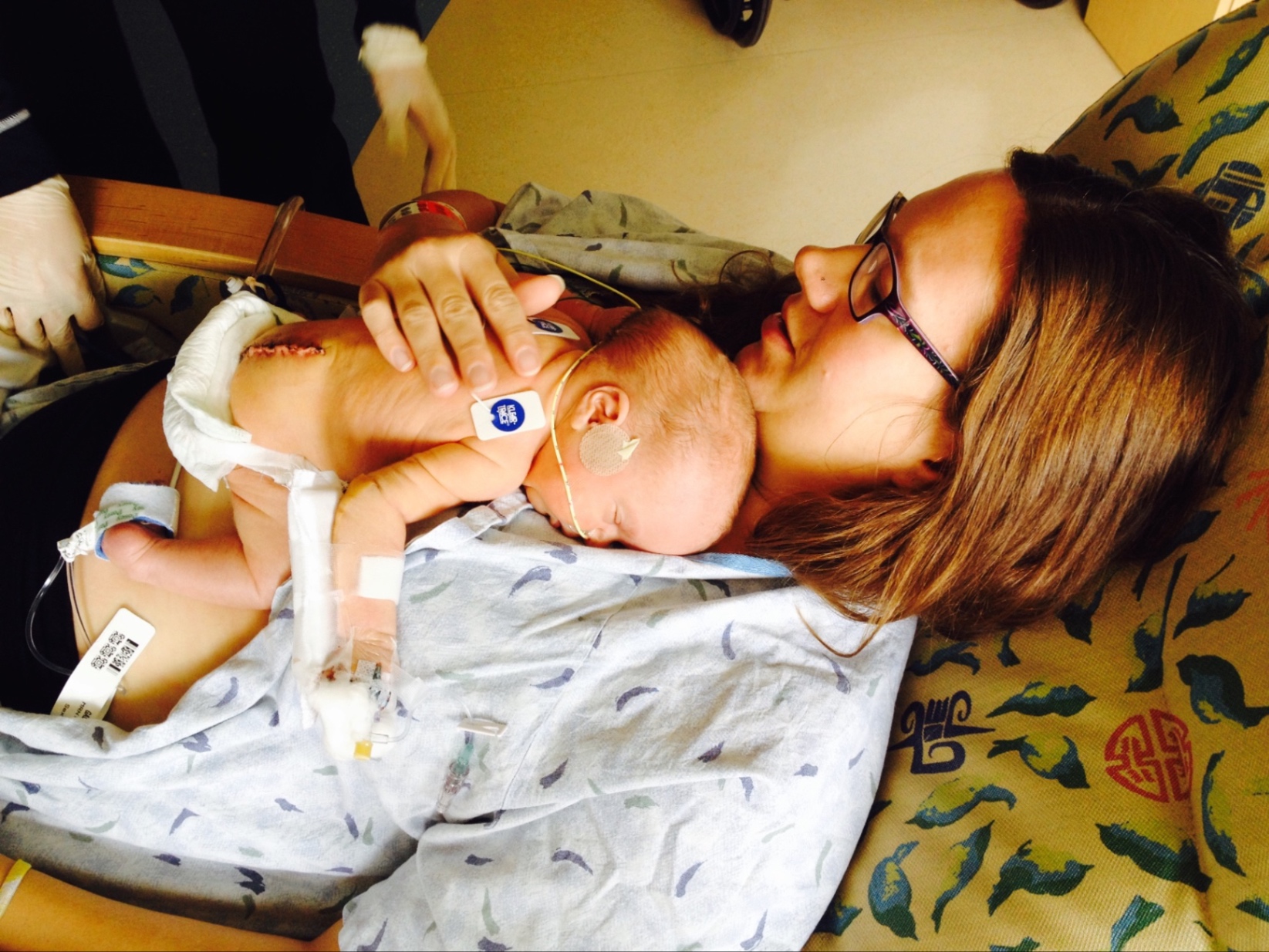The Things That Mommas Hold

Lately, I’ve experienced mini panic-attack-like moments on my morning runs. These episodes start with a strong pain in my arms, work up into my chest, and eventually stop my breath and my run. The hurt – it feels like my arms are screaming to be recognized.
Rest assured, I have talked to my medical provider, who ruled out any physical problems, so I’m left with trying to understand what my body is telling me.
The pandemic, social isolation, and reality of the precariousness of life triggered many women like me to recognize past traumas, current anxieties, and the inevitable suffering from circumstances that are bigger than us. At the same time, our children, spouses, co-workers, and bosses expected us to power through it and carry everything that we could. And, as we’ve always known, we can hold a lot.
I suppose my arms may be telling me that it’s time to lay some things down.

Because my daughter was born with spina bifida, the day she was born, she was rushed out of the operating room and into a mass of nurses and doctors. The medical staff rolled her by me as I lay on the operating table to get stitched up. I could not hold her because of the hole in her back and the exposed nerves and bones. But, I remember stroking her beautiful head and telling her I loved her. I remember, later, before her first surgery, being able to hold her and knowing how important that moment was for both of us.
Since that moment, I have been holding so much.
Maternity leave sailed by quickly, and I returned to work, supervising an outspoken group of master’s-level social workers, providing mental health consultation to 72 Head Start classrooms. It was a massive job that my boss agreed I could do in 32 hours per week. The job didn’t get smaller, just the hours.
On top of the responsibilities of supervising a team, writing grants, developing programs, and collecting data, I was a new momma. I was so busy that days were a blur, and I knew I was not doing anything well. There were many times when I had to fit a phone call/meeting into a drive out to the Children’s Hospital while also pumping breast milk.
(Did you know that they make hands-free pumps that come with an adaptor for your car!?!)
Obviously, I am not the first momma who has needed to figure this out.
While I had one day a week to attend the countless doctor’s appointments, I had four day a week to try and be a good boss. Ultimately, I was not successful in this.
On top of the trauma of my daughter’s medical diagnosis, the surgeries, and adapting to just being a mom, I had the feeling of failure in something I used to be good at.
Holding it all had became too much, but ironically, the very field I worked in – supporting new moms and dads – continued to push for more and more of me. I would sit in meetings discussing maternal mental health and how to help marginalized and isolated moms and their babies, while drowning in my own feelings of overwhelm and trauma.
I would hear the following statement over and over again – “You should do more. You should help because you can.”
But what my colleagues were missing was that I actually couldn’t do more.
I had the knowledge and the skillset, even the ability to push all of my own stuff aside to help others, but I lacked the capacity to hold it all anymore.
At the time, it felt like shame. My team responded to me with disappointment, stating that they were no longer comfortable around me. I could hear them, but the only thing I could do with their feelings about me and my ability to be a good boss was to judge myself, shut down, and leave.
That was quite a while ago, but I still think about that team often. I still feel guilt about how I responded to them at that time, and also, how I responded to the world in general. It seems that when asked to hold so much, I am not the person I want to be.
I often see this playing out in dyadic play sessions with kids and moms. The kids will say, “here Mom, hold this” and the mom will hold everything they are handed.
As the therapist in the room, I can reflect on what I can visibly see mom holding and wonder what else she may be holding. So many of us are holding 1000-pound bags of invisible stuff that has been handed to us.
Maybe some days we aren’t the people we want to be, and maybe some days we are. Some days we can hold all the things. Some days it crushes us.
There are mommas out in the world holding more than they can.
These mommas are holding personal trauma, generational trauma, systemic trauma, and the trauma of their children. They hold grief and loss, stress and overwhelm, marital challenges, loss of self, mental illness, and so much more.
What happens when the guilt and the shame come up because we aren’t able to hold all of it, to operate our lives well? Can we give ourselves what we have been trying to give others – help, understanding, compassion?
How this ended for me was that I left the situation, the job that continued to ask more of me without seeing ME.
I had to give myself space and permission to feel the shame, guilt, and feelings of failure. I also had to find a way to allow myself compassion – recognizing the ways I tried so hard to hold everything out of a sense of purpose, love, and passion. Aren’t these intentions so worth recognizing?
I can’t change how I responded to holding too much, but I can honor the pain and distress I felt, forgive myself, and return to my personal growth as each day gives me another challenge and, again, more to hold.
I hope that the world can begin to see us, that we are able to see each other, that we are able to accept ourselves and each other. When we allow for imperfection, for all of the things we are ashamed of or afraid of to be vocalized, we can begin to have genuine conversations and feel connection and pride in what we have lived through and carried.

